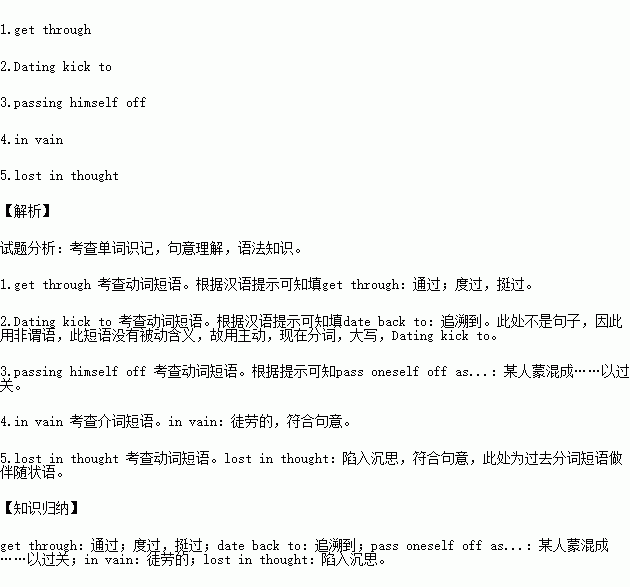题目内容
第二节句子翻译,填充短语
1.I’m very grateful that they helped me (度过;挺过)the hard times.
2. (追溯到)1,500 years ago,the old temple comes back to life again.
3.He escaped by (冒充为)as a guard.
4.I have tried very hard to find a solution to the problem,but (徒劳的).
5.He sat by the window, (陷入沉思).
练习册系列答案
相关题目

